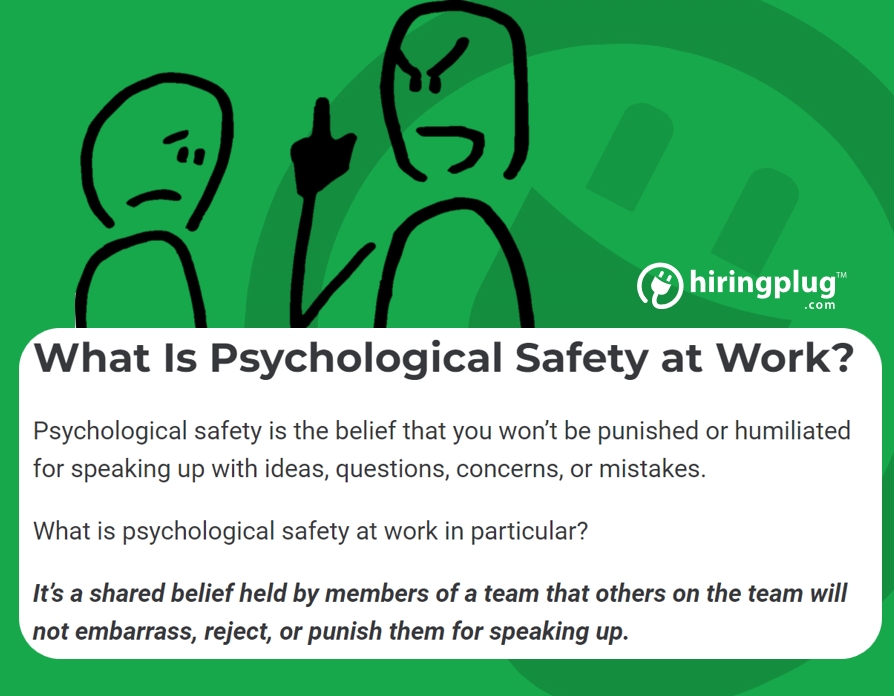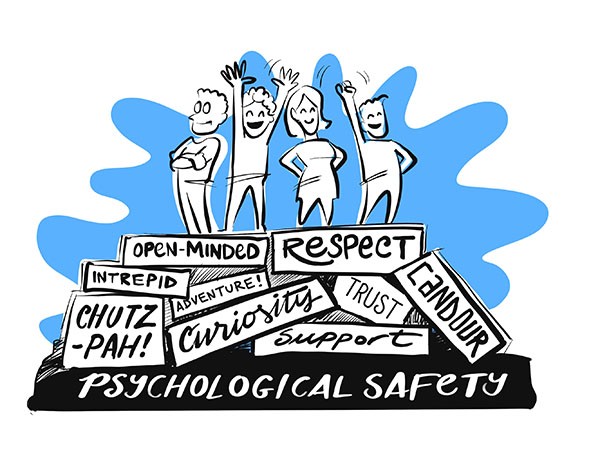Psychological safety is not a personality difference but rather a feature of the workplace that leaders can and must help create.

When employees feel comfortable asking for help, making informal suggestions, or challenging the status quo without worrying about facing social repercussions, they are more likely to innovate quickly, recognise the value of diversity, and adapt well to change—skills that have only become more important post the COVID-19 crisis.
The 4 Stages of Psychological Safety

Before they are able to challenge the status quo and make important contributions, employees must move through the following 4 stages.
Stage 1: Inclusion Safety
Inclusion safety satisfies the fundamental human desire to connect and belong. In this stage, you feel free to be who you are and are accepted for who you are, including your distinctive qualities and defining traits.
Stage 2: Learner Safety
Learner safety meets the desire to grow and learn. At this point, people feel comfortable exchanging information with others by asking questions, providing and receiving criticism, trying new things, and making mistakes.
Stage 3: Contributor Safety
Contributor safety satisfies the desire to make a difference. You are confident using your knowledge and talents to contribute meaningfully.
Stage 4: Challenger Safety
Challenger Safety addresses the need for improvement. When you believe there is a chance for change or improvement, you feel confident speaking up and challenging the status quo.
Afterall, as explained by Professor Amy Edmondson...
“Psychological safety at work takes effort. It’s not the norm. But it’s worth the effort!”
Leaders should foster and advance their team's sense of psychological safety in the workplace to assist employees in moving through the four stages and ultimately arriving at a point where they feel at ease with speaking up and taking interpersonal risks.The idea that psychological safety will be present in any relatively healthy work environment, like freedom from harassment or a dedication to keeping employees’ injury-free, is a significant misperception amongst managers. Workplaces that are psychologically secure are very uncommon.
It is incredibly difficult and requires a rare level of dedication and talent to foster psychological safety the assurance that openness and vulnerability are welcomed in the workplace. This is due to one basic fact: It's human nature for people to keep back ideas, be hesitant to ask questions, and avoid challenging the boss. This propensity makes it far more common than most managers realise for the free flow of ideas, worries, and questions to be impeded. It's a process of assisting individuals in developing new beliefs and actions, and none of it is simple or natural. To reverse it, one must concentrate and put-up effort. Senior leaders' inclusion is correlated with situational and cultural awareness, which is the comprehension of how beliefs can be formed based on picky observations and the norms in other cultures.
|
||||||||||
Hey there !
Author Details
Related Blogs
Popular Tags
Subscribe Now








